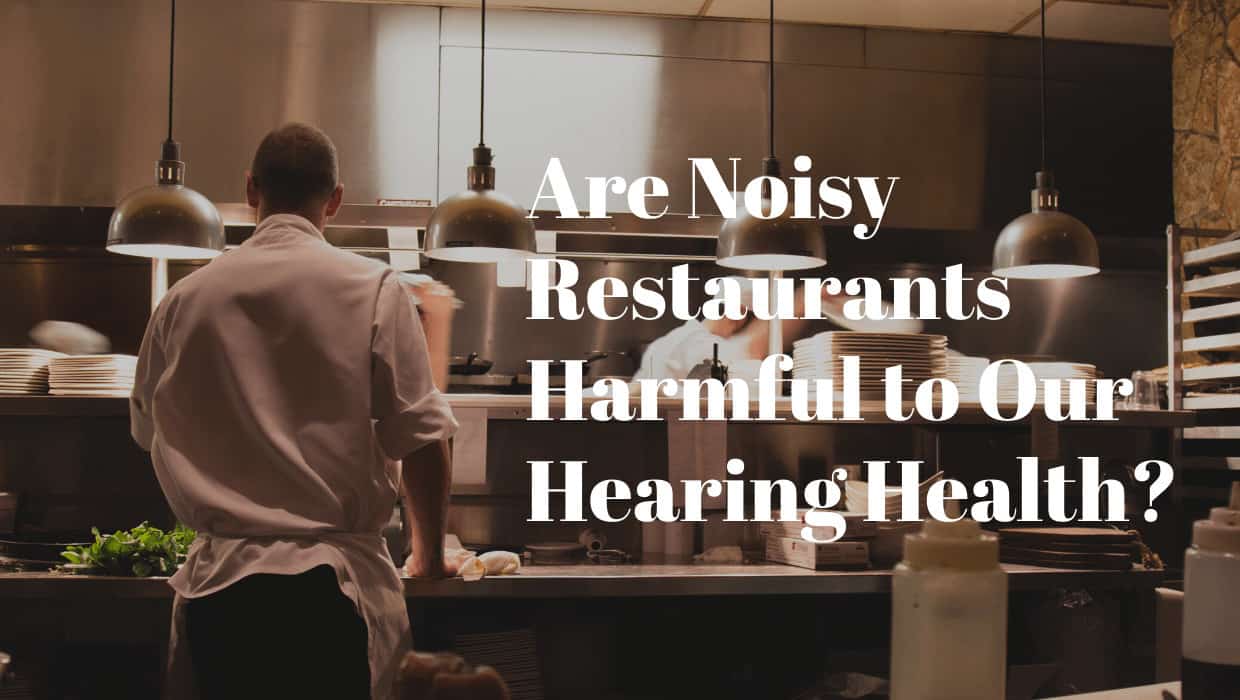Restaurant noise levels are an increasing concern for customers, employees, and restaurateurs alike. Both surveys conducted by Zagat and Consumer Reports found that excessive noise is the top grievance diners have before service, crowds, or even food problems. Reviewers have reported noise levels averages of 80 dBA or above in restaurants across the country, according to Restaurant Briefing. Nationally recognized reviewers have even begun to include the restaurants ‘ sound level as considerations in their ratings.
The trend for louder restaurants is real, and there are several reasons why it is happening.
The reasons for the noise
1. Music makes an atmosphere
Loud music gets us “drunk.” There’s empirical evidence that the louder and quicker the song, the faster people eat and drink. In the past, multinational restaurant chains have even created soundtracks that, whenever they want to switch to the next set of diners, change to higher tempo music at a louder volume.
That’s why many restaurant owners appreciate noisy restaurants because they believe the sound is transmitting a sense of vibrancy, the feelings diners associate with dining out. So much of the racket is deliberate.
2. Minimalist design is in, and it reverberates
Modern mid-century interior design and minimalism have been popular restaurant choices for the last decade. That means sparse, minimalist decoration; high, bare ceilings; and hardly any soft items such as curtains or carpets. Such features of the architecture are a treat for the eyes but a disaster for the ears. The lack of plush objects plus tall ceilings mean nothing absorbs sound energy, and a room filled with hard surfaces reflects everything around the room.
The effect is a noisy space that makes speech incomprehensible.
3. Sound dampening isn’t a priority for restaurateurs
Doing acoustics correctly can be extremely costly, particularly with the current fad of vaulted ceilings and exposed support beams. You need to hire acoustic consultants or engineers to monitor a space’s geometry and surfaces to find out which materials and treatments could make the right sounds appropriate for conversation. The more advanced you get, the more you increase costs, like all design and construction projects.
Not just a nuisance
Loud restaurants are not merely annoying — they are a threat to public health, especially to those who work in them or visit them regularly. According to Gail Richard, past president of the American Speech-Language-Hearing Association, being subjected to noise levels between 70 and 80 decibels causes hearing loss over time. This hearing loss is “preventable, but it’s irreparable too,” she said.
These levels of noise can make social interactions harder and endanger the hearing of the diners. It could also lead to hoarse voices the morning after the night before.
What to do about noise in restaurants
There are ways to avoid or tackle the noise if you choose to visit a potentially loud restaurant as a customer.
- Eat from 5-7 pm or after nine, before the restaurant gets busy and crowded.
- Sit away from any speakers. You can ask the server if there is an unusually quiet area to dine.
- Download a sound level app to monitor the sound. Apps like SoundPrint crowdsource the loudness of restaurants so that people can find quiet spots in which to dine. The IHEARu app is a similar concept, providing insight into other types of locations such as theaters and bars ‘ noise levels.
- Ask the manager to turn down the volume if the music is too loud. If that doesn’t work, take your business elsewhere and tell them why you’re leaving.
Hearing loss can make it harder to hear in noisy places
Of course, if you find it hard to hear in places with only a moderate level of noise, you may already have hearing loss — those with hearing problems find it even more difficult to block background noise and to concentrate on speech. This issue is very common, and if it happens to you regularly, a hearing assessment may be required.


